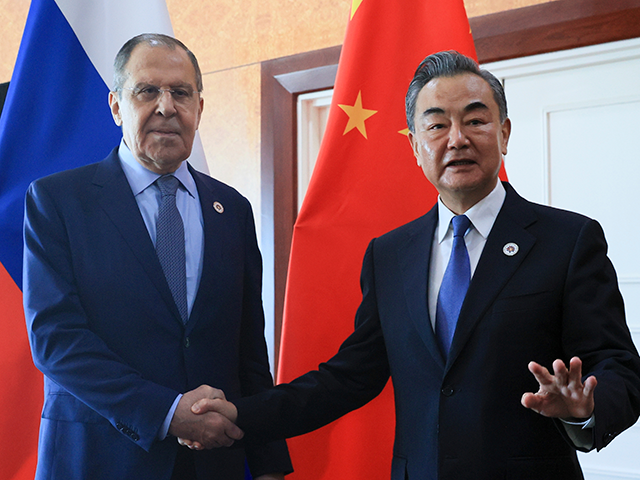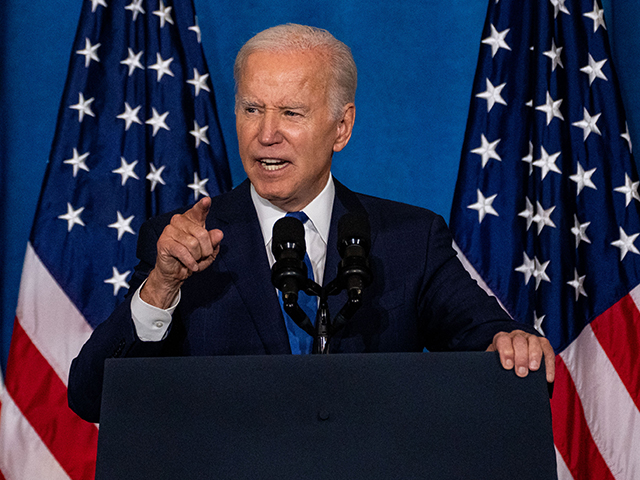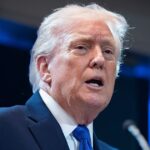
The U.S. State Department’s second Summit for Democracy, running from Tuesday to Thursday this week, was a disappointing affair — snubbed outright by Pakistan and mocked by the rising authoritarian powers of China and Russia.
Pakistan pulled out of the summit at the last minute, stating it could “promote and strengthen diplomatic principles” just fine on its own. Foreign policy analysts suspected the real reasons Pakistan bowed out were internal turmoil, as former prime minister Imran Khan rallies support in the streets for his bid to return to office, and a desire to placate China.
Pakistan might also have taken a pass on the summit because it would likely face human rights criticism from the other attendees, especially after the administration of incumbent Prime Minister Shehbaz Sharif began cracking down on opposition political speech.
For his part, Khan declined to attend the first Summit for Democracy when he was in power and, since he has publicly blamed the United States for conspiring to get him kicked out of office last year, he would be unlikely to attend next year if he returns to the top office.
Russia’s Tass news service on Wednesday quoted Kremlin spokesman Dmitry Peskov sneering that Biden’s summit “can hardly be regarded as a serious event.”
“Those who agreed to attend this class were free to do so, of course. It’s their sovereign right, but here, in fact, many see that such attempts to divide the world into first-rate and second-rate countries are now seen by many with a smile,” Peskov said.

In this photo released by the Russian Foreign Ministry Press Service, Russian Foreign Minister Sergey Lavrov, left, and Chinese Foreign Minister Wang Yi pose for a photo prior to their talks on the sideline of the 12th East Asia Summit foreign ministers’ meeting in Phnom Penh, Cambodia, on Aug. 5, 2022. (Russian Foreign Ministry Press Service via AP, File)
Russian Foreign Minister Sergey Lavrov chimed in by saying the Summit for Democracy “primarily represented countries obeying Washington’s policies,” plus a few who only attended because they want to curry favor with the United States. Lavrov’s underling Maria Zakharova, the spokeswoman for the Russian Foreign Ministry, dismissed the event as a “manifestation of U.S. neocolonial practices.”
China’s state-run Global Times jeered that the United States has no business offering lessons on democracy when it has mass shootings like the one that occurred in Nashville on Monday.
Perhaps sensing that opportunistic cheap shot might be a stretch even for Chinese Communist readers, the editors scrambled to find American media criticism of the summit it could parrot, and then tried claiming the Summit for Democracy was inherently undemocratic because it supposedly prods democracies to look down their noses at aggressive authoritarian regimes like China and Russia:
Interestingly, even many American media outlets have cried out “the emperor has no clothes.” Take a look at the headlines of several US media articles on Monday: “Why is Biden doing another pointless Summit for Democracy?” “What can be salvaged from Biden’s Democracy Summit,” “The US doesn’t need another democracy summit” and so on. These articles pointed out that the organization and decision-making process of the summit was chaotic, opaque, and lacking in inclusivity, and that there have been constant controversies over the selection of participants. These suspicions, criticisms and denials from within the US about the “Summit for Democracy” reflect the severity of the internal divisions in the country and expose the true colors of the summit.
Both the motives and outcomes of the so-called “Summit for Democracy” are anti-democratic, and it completely serves the diplomatic and geopolitical interests of the US. By drawing ideological lines and using the standards set by the US, it divides the international community into the so-called “democratic and non-democratic camps,” and creates division and confrontation in a world that urgently needs unity and cooperation. Reports on the summit have generally emphasized that it is aimed at dealing with the conflict between Russia and Ukraine and China’s rise. It is not surprising that it will once again become a propaganda event for Washington to persuade other countries to cooperate with its “competition” strategy. Such a face is not only ugly but also somewhat sinister.
The US has been touting that the essence of its political democracy is “freedom,” “diversity,” and “inclusiveness,” but the “Summit for Democracy” has become a sharp satire of these values: Washington shuts its door and sets a single standard for democracy, not allowing questioning and discussion, and cannot tolerate the existence of other democracies that differ from American-style democracy.
The Global Times was too busy scrapbooking every bit of bad news it could find on U.S. media websites into a grim requiem for democracy to think about criticizing the Summit for Democracy itself as a low-voltage media event, essentially a glorified web symposium that has not generated much news during any of its iterations.
That task fell to what the Chinese Communist Party paper described as “some American media outlets,” but was in fact a fairly new Washington, DC, think tank called the Quincy Institute for Responsible Statecraft, which posted a dour report on the Summit for Democracy on Monday that Chinese state media has been very fond of quoting.
“The best thing that the U.S. could do to ‘bolster’ the cause of democracy in the world is to improve our own practice of it here,” the Quincy Institute said.

President Joe Biden delivers remarks on preserving and protecting democracy as Election Day approaches at the Columbus Club at Union Station on Nov. 2, 2022, in Washington, DC. (Kent Nishimura/Los Angeles Times via Getty Images)
The Quincy report condemned the Summit for Democracy as a “largely pointless exercise” and wondered why the Biden administration would bother holding another one since the minimal product of the summit hardly seems worth the bad press that comes from excluding some nations for alleged authoritarian tendencies but including others — most notably India, which the report claimed has been “steadily moving in the wrong direction for years under Prime Minister Narendra Modi.”
The report also felt Biden’s foreign policy has alienated so many countries that it cannot afford to stick with a strict “autocracy vs. democracy” paradigm.
A similar epitaph was written by Foreign Affairs on Monday, quoting reports from organizations like Freedom House that found authoritarianism on the rise and democracy declining around the world, so this does not seem like an opportune moment for another gabfest about the wonders of representative government.
Foreign Affairs accused the Biden administration of doing little other than hold democracy confabs and issue press releases about how important democracy is, while awkwardly ignoring “democratic regression” in key nations like Turkey, Hungary, Poland, Chad, Thailand, and Vietnam.
“If this summit, like the first, doesn’t elevate democracy to the status of a core national security interest and lead to country-specific strategies for countering authoritarianism, many champions of democracy will be disheartened and could grow cynical about American intentions,” the article concluded.





